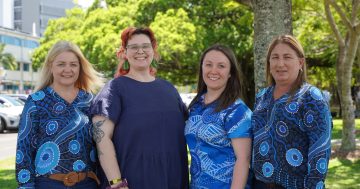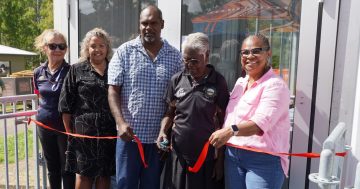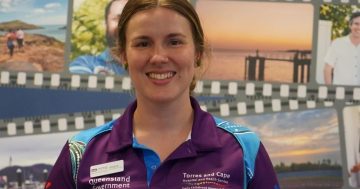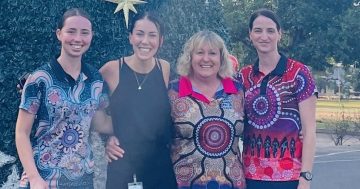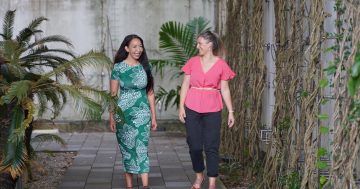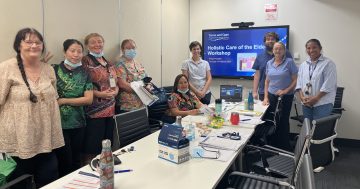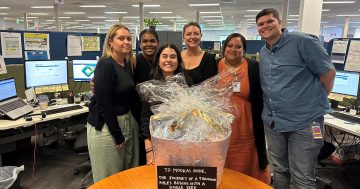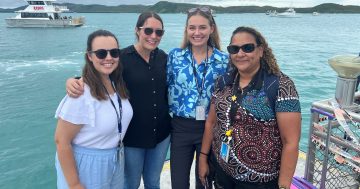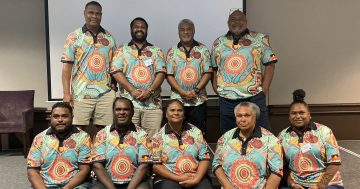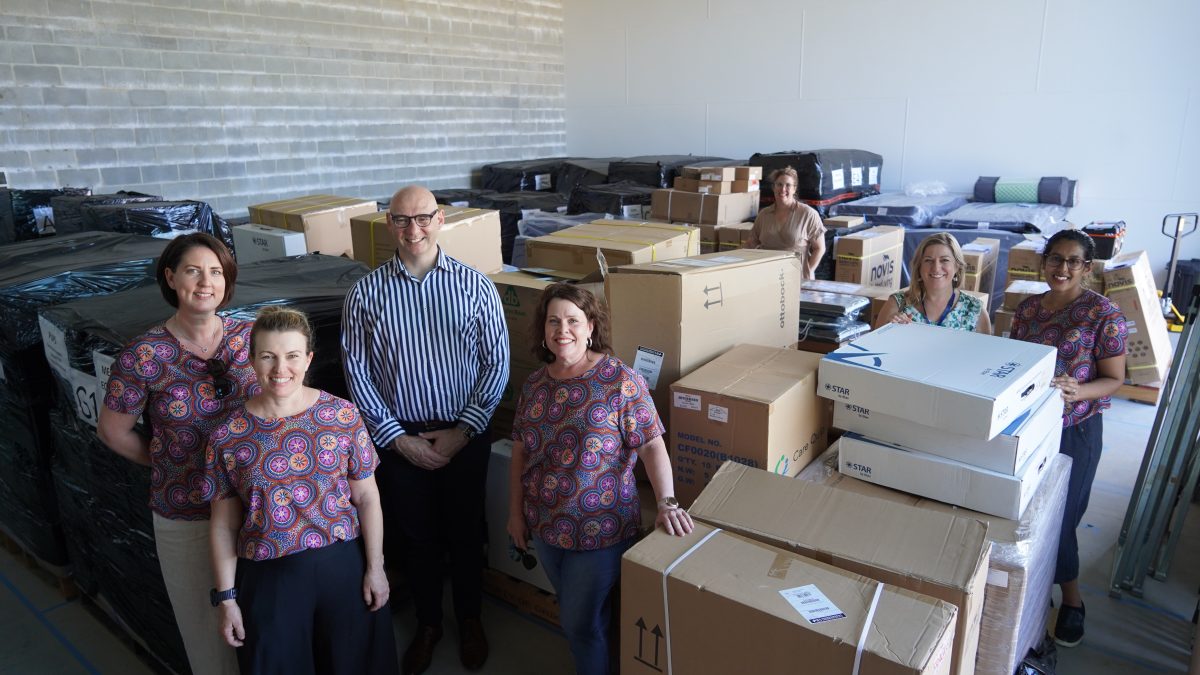
TCHHS clinical nurse consultant Charlene McCall, clinical nurse Kirsten Standage, chief executive Rex O’Rourke, administration officer Megan Lui, director aged, palliative, and disability services Jennifer Mann, executive director allied health Amanda Wilson and occupational therapist Lucy Burke inspect the new storage shed. Photo: Supplied.
More than 80 people have been able to return to their communities to die on Country in the past 12 months through an expansion of Torres and Cape Hospital and Health Service’s (TCHHS) palliative care service.
The culturally focused and safe pop-up palliative care (PUPs) team supports terminally ill Aboriginal and Torres Strait Islander people and their families who wish to return home to pass away on Country on Cape York or in the Torres Strait.
During the 2023-24 financial year, the PUPs team supported 84 people to return home, of whom 55 were able to die on Country in accordance with their wishes, while others were supported in the community.
PUPs team leader and clinical nurse consultant Charlene McCall said the team had expanded to nine staff which included nurses, Aboriginal and Torres Strait Islander health workers, allied health and administration staff.
She added the team worked with patients wishing to return home and their families to ensure the homes were fitted out appropriately with necessary supports to allow their homecoming.
“We know how much difference going home can make to an Aboriginal and Torres Strait Islander person in the final stages of their life,” Ms McCall said.
“Late last year, we had a patient urgently referred to our team from Townsville Hospital who wanted to return home to Cape York to feel the water near his community and cast a fishing line, just as he had done in his younger days.
“Being back on Country, among family and friends and the sights and sounds he cherished gave him peace in a way no medical treatment could and, incredibly, he lived seven months longer than expected.
“He had the chance to find healing in the connection to his community, culture and memories and share stories with younger members of the community.”
Along with a team expansion, TCHHS will now utilise a dedicated storage area in Cairns for equipment patients may need to return home, including beds, wheelchairs and other comfort care products.
Executive director allied Health Amanda Wilson said having immediate access to equipment allowed patients to return home faster.
“Rather than needing to order equipment for each referral the PUPs team, which includes an occupational therapist, will be able to identify what is required and send it directly to the community,” she said.
“We understand time can be of the essence for many of our patients, so this will be a fantastic way to expedite their return home.
“We are also considering ways to enhance our bereavement services and will be consulting closely with communities to ensure a culturally safe service, which is respectful of cultural protocols in each community.”


